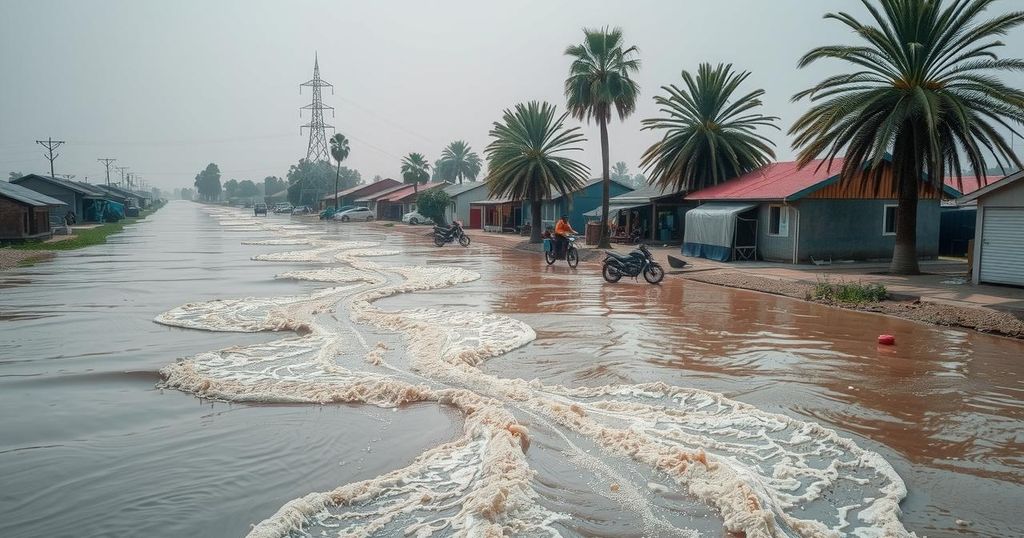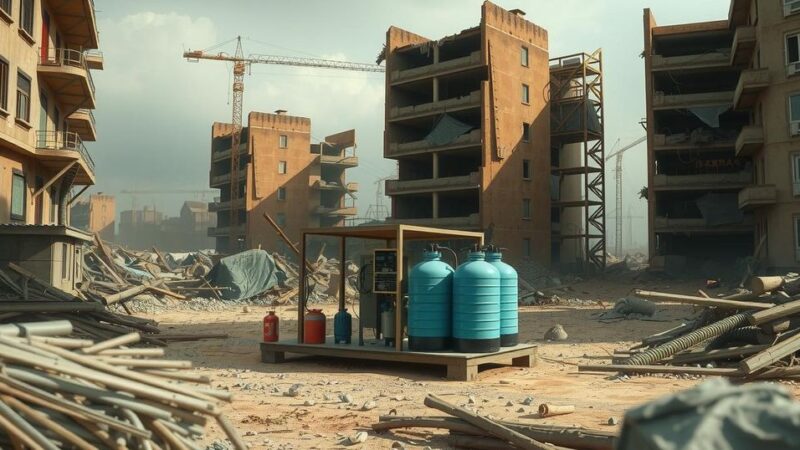The overflowing Nile River has displaced over 379,000 people in South Sudan, especially affecting pastoral communities. Residents have turned to the Jonglei Canal as a refuge, facing significant challenges like lack of basic services and reliance on aid. The flooding has ruined farmland, diminished livestock numbers, and exacerbated existing humanitarian crises and health risks.
The Nile River’s overflowing is causing significant displacement and hardship for thousands of residents in South Sudan. In Pajiek, a new community formed amidst the floods, many families are now surviving along the edges of the canal, which has transformed into an unintended refuge. The floods, exacerbated by rising water levels in Lake Victoria and the release of water from upstream dams, have submerged entire villages like Gorwai, impacting agricultural productivity and livestock keeping, particularly for pastoral communities such as the Dinka, Nuer, and Murle.
The World Bank has identified South Sudan as highly vulnerable to climate change, with this year witnessing the displacement of over 379,000 people due to flooding. Once reliant on seasonal floods, local communities are now grappling with the persistent increase in water levels since the 1960s. Additionally, the Jonglei Canal, initially conceived more than a century ago, has become a makeshift lifeline for the displaced, but basic amenities such as schools and clinics are notably absent in Pajiek, highlighting the challenges faced by communities in crisis.
Current refugees like Bichiok Hoth Chuiny, who was forced to relocate for the first time in her life, express the profound difficulties they are enduring in their new environment. There is a noticeable lack of government support and they rely heavily on aid from organizations like the World Food Program (WFP). The situation is further complicated by economic challenges following a civil war and the disruption of oil exports, which have exacerbated the crises affecting healthcare and the supply of necessary drugs.
The healthcare sector is struggling under the weight of insufficient supplies and unpaid medical practitioners, leaving residents vulnerable to health risks, including potential snake bites prevalent in flooded areas. As communities adapt to their new realities, they face a grim future compounded by the absence of resources and support, which leaves many dependent on dwindling food aid supplies.
The overflowing of the River Nile has significantly impacted South Sudan, a country already grappling with political instability and economic strife since its independence in 2011. Excessive seasonal flooding has historically affected pastoral communities, but the intensity of these floods has worsened over recent decades. According to the World Bank, South Sudan currently ranks as the world’s most vulnerable country to climate change, facing challenges in disaster response and management. The disruption of the traditional lifestyle of communities, reliant on livestock and farming, underscores the urgent need for coping mechanisms and governmental support to address both prolonged flooding and underlying socio-economic issues. In addition, the Jonglei Canal’s historical context reveals the complexities surrounding infrastructural developments hindered by long-standing conflicts.
The overflowing River Nile has created a humanitarian crisis in South Sudan, displacing hundreds of thousands and undermining local agricultural practices and livestock maintenance. The dire circumstances faced by communities like those in Pajiek underline the urgent need for aid and government intervention. Despite the historical plans for infrastructure improvements, current challenges related to healthcare, farming, and basic living conditions require immediate attention to mitigate the ongoing impact of flooding and support vulnerable populations in their recovery efforts.
Original Source: www.independent.co.uk






